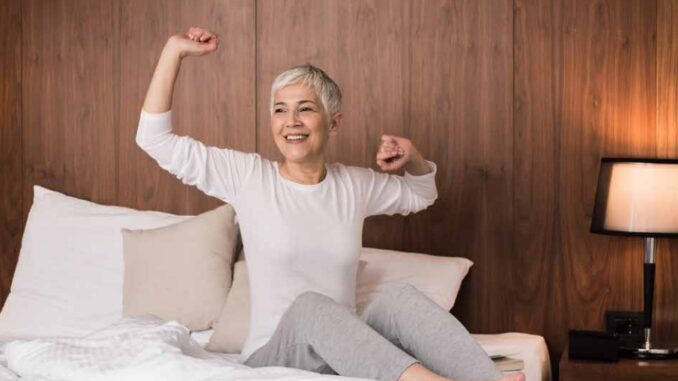
A good night’s sleep is essential to both physical and emotional health.
You need this down time to rest and recharge but sleeping also has a positive impact on your brain and emotions. Rest helps build a reserve of needed strength and calmness when we suffer tiredness, overexertion, or a bout of illness. Our immune systems are particularly vulnerable to lack of sleep, meaning you have fewer defenses against disease. Lack of sleep, or enough sleep, has been connected to inflammation issues, depression, heart disease, anxiety, and difficulty in regulating appetite. Here’s how to get back on track:
WHY IT HAPPENS
Between 40 and 70% of seniors suffer from chronic sleep problems, researchers confirm, and as many as half may be undiagnosed. This is a pressing issue, because older adults actually need about the same amount of sleep as those in their 20s. They often get far less because of a variety of issues: Some suffer from insomnia because of health issues or anxiety, while others cite sleep apnea, restless leg syndrome, frequent urination, or pain from maladies like arthritis. Medications may sometimes interfere with regular sleep patterns, too. If your meds are to blame, talk to you doctor about adjusting the dose or timing. They may even recommend switching to a different prescription.
GETTING TO SLEEP
It starts with getting to sleep more quickly, since the initial frustration with tossing and turning can lead an extended period of trouble dozing off. Avoid using computers, phones, or other electronic devices just before bed. Try to develop a relaxing ritual before bed so that you’re in the proper frame of mind. That may include a relaxing bath, reading a chapter or two of a good book, or listening to calming music or nature sounds. Avoid tobacco or caffeine just before bed since both tend to energize people rather than help them wind down.
THE NEXT MORNING
Our night-time sleep cycles aren’t the only time we should rest — and regular intervals of rest during the day can have big health impacts, too. Take a moment or two throughout a busy day to relax. Take a walk or listen to a song or two. Try napping less and exercising more, since both can have a direct impact on getting to sleep — and staying asleep.


